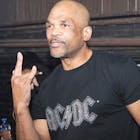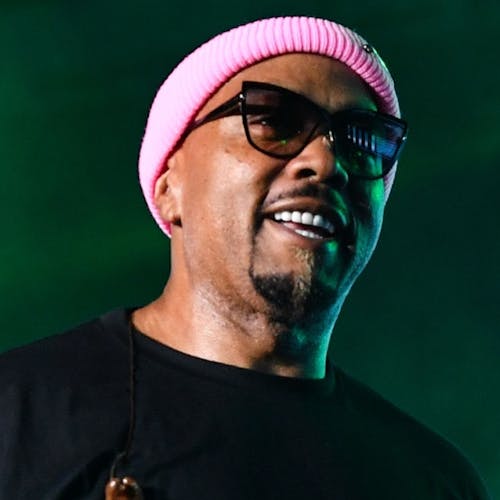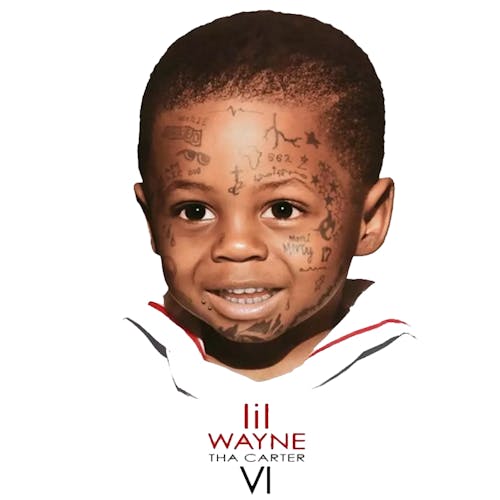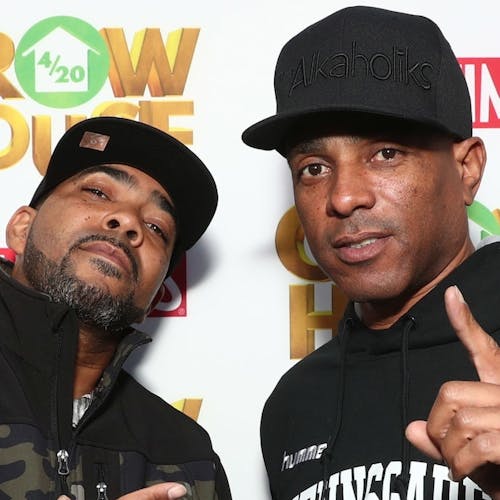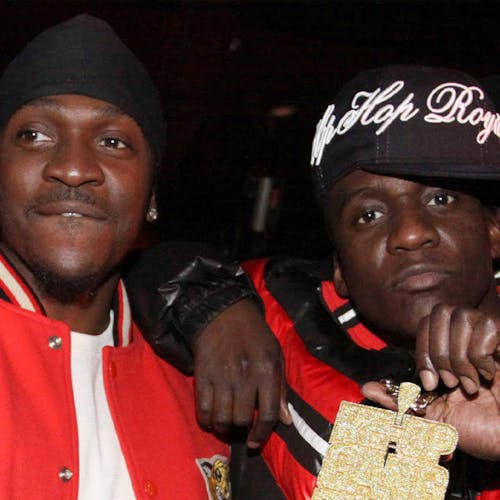
DMC Announces Star-Studded Solo Album: 'It's Gonna Be Sick'
DMC Announces Star-Studded Solo Album: 'It's Gonna Be Sick'
By Kyle Eustice
Published Tue, May 30, 2023 at 12:30 PM EDT
Music, in many ways, saved Darryl “DMC” McDaniels’ life.
Alcoholism had taken hold and, at one point, the trailblazing member of Run-DMC was guzzling a case of Olde English 40 ounces a day while simultaneously popping dangerous prescription pills. Suicide seemed like a viable option to put a stop to the pain he was experiencing. But in 2004, he was able to get clean and start a journey to recovery. Music saw him through the highs, lows and everything in between.
“Music was always an outlet for this shy kid to express himself,” he tells Rock The Bells. “All I did was read my comics and draw. When Hip Hop came over the bridge for me, I was like, ‘Oh, shoot, you can tell stories about who you are over music.’ So it allowed Darryl McDaniels from Hollis, Queens, New York to be seen and heard. Prior to that, everything was internal. As the saying goes, music calms the savage beast. It lets you know you don’t have to be so angry. I mean, you can be angry about your situation, but I think art and creativity allows you to realize it’s your situation that’s bad—not you.”
Nearly 40 years after DMC, Joseph “Run” Simmons and Jam Master Jay released their debut self-titled album, DMC is still using music as his catharsis. DMC is in the middle of finishing his next solo album, America, which will feature some of the biggest names in Hip-Hop and rock. For starters, Ice-T and his metal group Body Count are doing a remix of the 2022 single “Me & My Microphone,” which DMC is clearly excited about.
"So far, I got Joan Jett, Sammy Hagar [Van Halen], Blacktop Mojo, Mick Mars from Mötley Crew, Duff McKagan from Guns N’ Roses, Travis Barker [blink-182] on drums, Sebastian Bach from Skid Row, my own band DMC & The Hell Raisers, Chuck D and Ice-T," DMC says of his upcoming solo album. "It’s gonna be sick."
DMC also provided an update on the Run-DMC documentary that’s currently in the works.
“We're just waiting to do final interviews with Rick Rubin and Aerosmith," he says. "They want to edit it and then it will be out either in December 2023 or at the top of the year.”
However, the Run-DMC reunion concert planned for Madison Square Garden — which was going to close out the film — was nixed. “It’s not gonna happen,” he says. "Nobody had the vision I had. Nobody’s thinking what I’m thinking. Run and I did our interviews and everything, but what I wanted to do was The Last Waltz thing. But nobody wants to do it, so I’ll think of something more creative.”
As for alternative ideas, he has one: “Me getting Metallica, Paul McCartney, Rage Against The Machine, Jackyl and Sum 41 and just do a show with me doing my Run-DMC records with some of the greatest bands in history. Me and Axl [Rose] on vocals. Imagine me and Axl doing ‘Rock Box’ together or me and James Hatfield doing ‘King of Rock.’”

I think art and creativity allows you to realize it’s your situation that’s bad—not you.
DROP YOUR EMAIL
TO STAY IN THE KNOW
In the meantime, DMC is busy with community nonprofit work. Anyone familiar with his journey knows he’s never been shy about his struggles. He wrote a book about it in 2016, Ten Ways Not To Commit Suicide: A Memoir, and as the title suggests, he gets candid about his substance abuse issues and mental health. His story had a profound effect on countless people, including Gene Bowen, founder of Road Recovery. Founded in 1998, the nonprofit aims to help 13-25 year olds “manage or avoid the pitfalls and challenges of behavioral issues, physical or mental health trauma, poverty or drug or alcohol dependency,” as noted on its website.
DMC has been working with the organization since 2018 after being recruited by Bowen, who was moved by his memoir. The Hip-Hop pioneer provides mentorship, performance workshops and “all access” opportunities to create and produce live concert events and studio recording projects.
“It’s giving these kids an opportunity to recover from whatever trauma they’re experiencing—whether it's abuse, society, financial problems, whatever,” he says. “We’re using music and the arts to heal because the arts succeed where politics and religion fail.”
DMC shares the same vigor he has for his music with the kids at Road Recovery. It’s one of the most satisfying aspects of his career.
“To have the kids who were involved in gangs and gun violence or who were incarcerated realize they will never have to do those things again is the most rewarding part,” he says. “They can be proud about it. When they come in, we don't judge them. The beauty of it is to let these kids show who they are, regardless of what other people think or what their situation is. That’s beautiful.”
For the young people involved in Road Recovery, music is providing the therapy and healthy outlets they so desperately crave.
"These kids are coming from home, neighborhood and societal situations that create trauma," he says. "A lot of these kids are suffering from PTSD, and they hold in their feelings and emotions. You might have a kid who might not want to rap, but he'll be like, ‘Yo, I'll play the drums’ or they’ll say, ‘Hey, teach me guitar and I'll produce the beat’ or ‘I'll write to it, but I don't want to sing it.’ Imagine a kid dealing with so much who didn't want to get up in front of the room and do it himself but then sees somebody get up there and perform what they wrote. That’s huge. That’s powerful. That’s therapeutic.”
